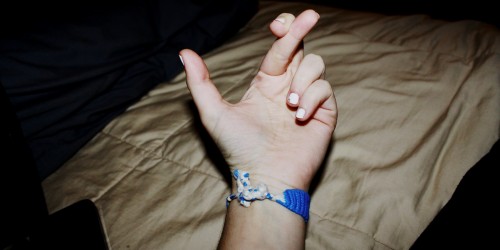

“We’re more likely to follow through when we’re held accountable,” she says. Leaning on a support system may help you cope and manage your tendencies.Ĭook recommends asking a trusted friend or family member if they’re willing to be your support while you learn and practice new coping strategies. “This is due to the fact that compulsions are often premeditated and thought about in advance, and the individual has a history of getting immediate relief from the acts, and learning new coping skills takes time,” she says. “Some medications have also been helpful in treating compulsive thoughts and behaviors.”īut Cook’s opinion is that compulsive behaviors are more difficult to medicate than impulsive ones. “Medication has been shown to be highly effective in decreasing impulsive behaviors in individuals who a neurologic disorder like ADHD,” Cook says. Medications for these behaviors tend to be the same as those used to treat OCD. Taking the right medication may also help you manage or treat impulsive or compulsive behaviors. “ Therapy can definitely help with both compulsive and impulsive behaviors by assisting an individual in not only understanding the causation (which is very therapeutic) but also alternative personalized coping strategies for managing both thoughts and behaviors,” Cook says. Here are a few ways to cope with your symptoms. Managing your compulsive or impulsive tendencies is possible. According to a 2020 study, compulsion is a key symptom of severe substance use disorder (SUD). In addition, some addictions may start as impulsive and eventually become compulsive. eating disorders (like binge eating disorder).Other mental health conditions that could lead to impulsivity or compulsivity may include: This disorder has its roots in childhood. Compulsive liars are also called habitual or chronic liars. Compulsive liars, on the other hand, lie because it is an automatic response to any situation. other specified and unspecified disruptive, impulse-control and conduct disorders Pathological liars are manipulative and cunning and lie to achieve their goals without caring about hurting the feelings of others.attention deficit hyperactivity disorder (ADHD).other specified and unspecified obsessive-compulsive and related disordersĬook adds many mental health disorders may cause impulsivity, such as:.obsessive-compulsive and related disorder due to another medical condition.substance or medication-induced obsessive-compulsive and related disorder.
#Compulsive liar disorder skin

trichotillomania (or hair pulling disorder).While many people have a natural tendency to behave in impulsive and compulsive ways, these behaviors may also be symptoms of a mental health condition.Īccording to Cook, the following mental health conditions are associated with compulsivity: There are many possible causes of impulsive and compulsive behaviors.


 0 kommentar(er)
0 kommentar(er)
